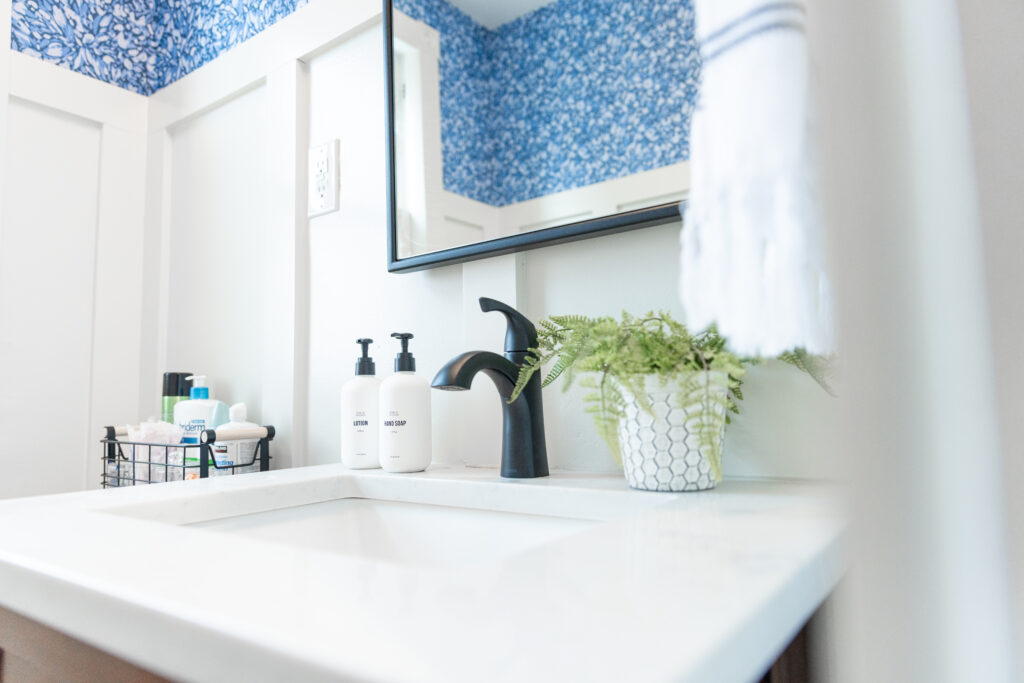
How to Handle Firing a Cleaner: A Step-by-Step Guide
Let’s face it, the thought of firing a cleaner can feel overwhelming. It can feel like a personal judgment, especially when they’re so crucial to your short-term rental business. However, sometimes letting someone go is necessary for the success of your business and your peace of mind.
You may be hesitant, concerned about the termination process, especially with the unique demands of the short-term rental industry. The fear of disrupting your rental income while searching for a replacement is valid. These concerns are natural, but delaying a necessary change can be detrimental.
We’ve rounded up all of our Airbnb Hosting Must-Haves right here in our Amazon Store. Click here to grab everything you need to curate your property and start earning 5-star reviews.
Are You Promoting What You Permit?
- Are You Promoting What You Permit?
- When It’s Time to Consider Firing a Cleaner
- Firing Fast but Fair: Handling Difficult Conversations
- How To Make It Easier For Next Time
- Conclusion
Are You Promoting What You Permit?
Many hosts express dissatisfaction with their house cleaner. But, they often tolerate it, believing a specific cleaner is their only option or they’re the best that’s available in the area.
Sometimes, hosts are reluctant to re-enter the hiring process. Other times, complacency sets in, avoiding the temporary burden of handling cleaning duties themselves. However, this doesn’t solve the underlying issue.

Re-Evaluating the Cleaner’s Role
First, it’s crucial to manage expectations. Even highly skilled cleaning services won’t clean precisely like you would. Their work may be equal in quality, perhaps even superior, but different.
There’s a legal aspect to consider, especially for contractors. If you hire contractors for their expertise, you can’t dictate their methods. However, you must be clear about the expected results.
Evaluating Your Performance as a Client
Consider if you’ve been an effective communicator with your cleaning employee. If the work isn’t meeting standards, examine the instructions you’ve provided. It can be beneficial to offer visual examples to the person to avoid a difficult conversation later.
A detailed checklist is essential for ensuring mutual understanding. Explain its importance and even state, “This checklist is our contract for every cleaning”. This emphasizes its significance for a proper cleaning procedure.
Defining Roles: Cleaner vs. Inspector vs. Maintenance
Many hosts, influenced by online advice, assign cleaners tasks far beyond their job description. This frequently involves responsibilities the cleaner wasn’t originally hired to perform. Also be aware if you need an office cleaning done versus a standard home cleaning, it is different.
Tasks that are considered outside of what a “cleaner” should handle are things like: acting as an inspector, overseeing all safety checks, property staging. A great way to keep your cleaning team accountable is by hiring an independent inspector—someone who checks the property after cleaning and before guest arrivals. If your inspector is frequently reporting unmade beds, dirty bathrooms, or missing amenities, this signals an ongoing problem. A strong cleaner-inspector relationship can help address gaps in performance, but if issues persist, it may indicate that your cleaners aren’t taking feedback seriously. Consider using our independent contractor agreement to hire an inspector and set expectations from the start. If your cleaning team still isn’t improving despite extra oversight, it might be time to find a more reliable crew.
Remember, house cleaners aren’t managing your business, they’re not meant to do every job within your rental. Your operational procedures should reflect this to avoid unreasonable demands. Keeping a clean living room is important to a proper presentation of the entire house.

Providing the Right Tools for your Cleaner
If your cleaner is a contractor, they usually supply their own cleaning equipment. If you want them to supply green cleaning items, that needs to be noted. Clearly communicate your supply expectations.
If you advertise a pet-friendly rental, ensure the cleaner knows to address pet-related cleaning. If there is an in/out cleaning needed, or a deep cleaning, they will need to understand what those needs mean. Ensure any equipment you provide is functioning well, such as your vacuum.
Confirm they have ample time to complete all tasks while working. Communicate with your cleaner and discover how they address your needs to help everyone do a good job.
The Importance of Consistent Communication with your Cleaner
Even great cleaners working with other clients can experience problems. It’s normal, though undesirable, for individuals to occasionally lose focus. A business owner shouldn’t be negatively impacted due to other outside issues, so communicate expectations.
As the property owner, taking time to ask questions will help minimize misunderstandings that could lead to bigger problems. Make sure you and the cleaner know expectations on site and produce quality work. Occasional recurring check-ins, can have a huge impact on consistent customer relations.
Check out our post on preventative maintenance to see how a proactive approach can save you money—and why a cleaning team that doesn’t report issues may not be worth keeping.
When It’s Time to Consider Firing a Cleaner
Even after improving system clarity, performance problems might persist. If all parties understand expectations, yet the plan still fails, it’s time to reassess. After these efforts, there are often deeper concerns.
Here are five reasons it may be time to let a cleaner go:
1. Declining Cleanliness Standards
The biggest indicator of subpar cleaning is negative guest feedback, in reviews or direct messages. A significant factor influencing booking decisions is the property’s overall impression, primarily driven by ratings. A core service a cleaner provides, that results in great reviews, is how comfortable a guest is.
You don’t want guests pointing out cleaning deficiencies. Property owners should monitor quality to keep a clean business. Before making a final decision, be sure to set clear expectations and provide training resources. Need guidance? Check out our post on how to clean your Airbnb like a pro to ensure your team is following best practices. If they still can’t meet your standards, it may be time to part ways.
2. Tardiness or Last-Minute Cancellations from your Cleaner
Consistent arrival times are essential; otherwise, your business operations suffer. Late arrivals create friction between expected check-in times and actual readiness. Delays start a negative trend when monitoring schedules or using lock systems to verify start times.
Cancellations create even more significant issues, especially for managers of remote properties. If unexpected events occur, who is the backup? Guest cancellations should be exceptionally rare.
3. Cleaners Dictating *Your* Schedule
Allowing cleaners to control cleaning schedules results in lost revenue and unnecessary property downtime. Bending to their scheduling constraints creates limitations benefiting only them, not the overall workflow. It’s important to use tools to assist everyone involved, like bidding calculators to align with expectations.
Letting them dictate scheduling can seriously impact profitability. If their inflexibility affects your bottom line, your business will struggle.
4. Resistance to Systems & Feedback with your Cleaner
When hiring a cleaning service, certain agreements must be made before completing their tasks for payment. Compensation is straightforward when work is fully completed to an expected level. The same principle applies to your cleaning services, where agreements on expectations, procedures, and tools should be clearly defined upfront to prevent any confusion or disagreement.
Using an app to facilitate communication benefits everyone involved. Apps can be part of a referral program that makes work even easier for people to participate.
If agreements are documented, address potential issues proactively. If they resist agreed-upon methods, find a new cleaning company.
5. Safety & Liability Concerns when Working with your Cleaner
Here are safety and liability matters to monitor with your cleaning companies. Ignoring these factors could be considered negligent.
First, if cleaners fail to secure the property upon leaving, it remains vulnerable. In locations where multiple units are cleaned, doors might be accidentally left ajar. Or, the house might need airing out, unintentionally inviting unauthorized entry.
Develop a comprehensive plan and checklist to address these concerns, ensuring everyone’s safety and success. Proper protocols need to be taken with any terminated employee to reduce liabilities.
Here are some Safety and Liability items to discuss:
| Item | Actionable Considerations |
| Unknown Team Members | Ensure anyone working for the cleaner understands the agreement terms. Cleaners sometimes bring along children, partners, or others who haven’t undergone the interview and expectation-setting process. It is also your responsibility for knowing and vetting those individuals. |
| Cleaning Chemicals | You’re responsible for the products the cleaner uses, as these chemicals directly contact guests. Exercise caution regarding the surfaces they affect within the property. Excessively harsh detergents used in the washer could damage bedding. |
Firing Fast but Fair: Handling Difficult Conversations
Nobody enjoys confrontation. We definitely don’t advise firing someone instantly after their initial mistake, after you hired them.
Here’s our suggestion on how to strategize an exit from a problematic cleaner relationship.
Be Kind.
Before taking drastic action, communicate using simple language. Specific details are easier to address, and feedback should be given promptly, ideally on the same day the issue is observed.
Approach the situation with curiosity rather than judgment.
Offer Solution(s).
If the cleaner needs assistance to rectify an issue, see if you can help. If they express concerns, that are barriers to success, help resolve those issues. Determine how to help remove those barriers, such as if you are cutting corners for expectations.
If they’re unwilling to cooperate, seek a replacement. Sometimes, solutions aren’t possible, and that needs to be acknowledged.
Conduct a Trial Run.
After providing kindness, resources, and a reset timeframe, initiate trials to verify any agreed-upon improvements. A timeframe should only start if both sides are clear in their responsibility in making the working partnership worthwhile.
How To Make It Easier For Next Time
You don’t want to relive the same scenario after it initially occurs. Here’s how to avoid poor judgment calls or finding yourself in unsuccessful partnerships.
Backup Cleaners.
Think proactively and have a backup plan if your current solution fails, whether temporarily or permanently. Familiarize yourself with other potential cleaners in the market who can work within similar price ranges. If you must pay a higher rate for short-term work to maintain operations, it’s a worthwhile cost, especially in rare cases.
Your backup cleaner could even be YOU. Have a family member help, if need be, when all other options are depleted. While it may not be ideal, we know you’ll step up to address any property needs.
Utilize Multiple Cleaners.
Relying on a single “perfect” cleaner isn’t ideal, even if their work is exceptional and reliable. No matter what, continue sourcing beyond your primary choice, as unexpected events could impact their availability. Diversifying your cleaning partners establishes overall consistency, spreading the workload for enhanced reliability.
Airbnb Cleaners
When a vendor relationship isn’t mutually beneficial, or hinders consistent success, address it promptly. After repeated attempts to resolve the situation, using your established systems, parting ways might be the most straightforward solution, which can be as simple as firing a cleaner. This is necessary and a good business practice when done with reason.
This decision might not always feel easy, but the business cannot thrive if everyone is not making equal contributions. Once you go through the “letting go” process, it becomes easier to detach emotionally from a cleaner’s needs and make good output a focus of what your properties can maintain.
Calling All Hosts: The Hosting Handbook
If you loved this post we invite you to check out our one-stop-shop solution for hosts everywhere —the Hosting Handbook! While you can download all the easy to consume, step-by-step tips we use in our own hosting business and create the ultimate “book” the Hosting Handbook is so much more than that! If you’ve consumed or content for years (or just met us!) this is the reference guide for all the amazing and tactical tips we have for running a profitable and, more importantly hospitable, short-term rental. How do we price for pets? How do we fold our towels? What sheets do we buy? How do I purchase a short-term rental? All these questions (and more!) can be answered in the Hosting Handbook! Check it out now!
Happy Hosting!


show comments
HIDE comments